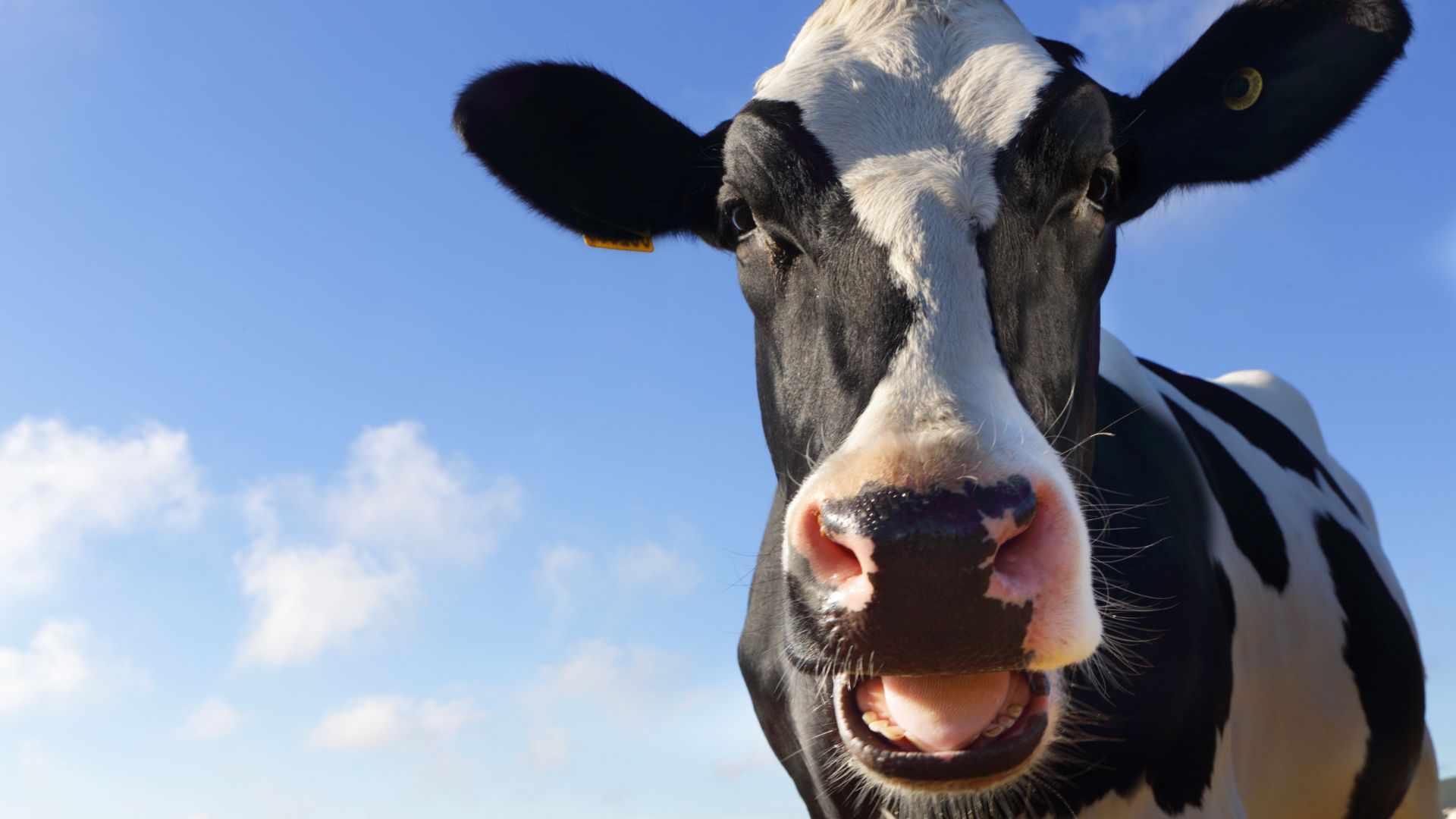Cows fed hemp act stoned and produce milk containing THC
Cows fed hemp, which is not yet an approved animal feed, behaved strangely and produced milk with THC.

The dairy cows wobbled unsteadily on their hooves, their tongues lolled about and the membranes of their eyes reddened. What triggered these odd symptoms? A diet of industrial hemp, researchers say.
The cannabis-derived product didn't give cows the munchies — in fact, the cows decreased their overall food intake. In turn, they produced less milk, but the milk they did yield contained detectable levels of both delta-9-tetrahydrocannabinol (THC), the primary high-inducing compound in marijuana, and cannabidiol (CBD), which exerts some effects on the body but isn't psychoactive.
Hemp is not yet an acceptable animal feed additive in the U.S. or Europe, in part due to concerns that the plants' active compounds will find their way into milk, senior author Robert Pieper, temporary co-head of the Safety in the Food Chain department at the German Federal Institute for Risk Assessment, told Live Science in an email. But as the hemp and CBD industries have grown, stakeholders and regulators have theoretically considered using hemp as animal feed, citing its cheapness and nutritional value, Science reported. However, there's not yet enough research to approve the plant for such use.
In a new study, published Monday (Nov. 14) in the journal Nature Food, Pieper and his colleagues found that cannabinoids can slip into the milk of hemp-fed cows, but the risk this could pose to consumers remains unclear.
Related: Marijuana's history: How one plant spread through the world
To evaluate the effects of hemp on dairy cows and their milk, researchers fed 10 lactating dairy cows feed containing hemp with different concentrations of cannabinoids, meaning cannabis-derived compounds with drug-like effects. Hemp and marijuana come from the same plant species — Cannabis sativa — but by definition, hemp contains no more than 0.3% THC, while marijuana carries higher concentrations, according to the U.S. Food and Drug Administration (FDA).
In the first week of the trial, researchers swapped some of the cows' corn-based feed for hemp feed made from whole C. sativa plants, which contained low doses of cannabinoids. Then, for the next six days, they fed the cows a high-cannabinoid hemp feed made from flowers, leaves and seeds of the plants.
Sign up for the Live Science daily newsletter now
Get the world’s most fascinating discoveries delivered straight to your inbox.
The whole-plant feed had no effect on the cows' health or behavior. But within hours of switching to the flower feed, the bovines' breathing and heart rates fell unusually low. These are "rare symptoms in cows that only occur in the course of serious illnesses or can be pharmacologically induced," the researchers noted.
The cows drooled, yawned and produced more nasal secretions than usual, and their eyes reddened. They also exhibited "pronounced tongue play." Some cows who ate larger amounts of the flower feed developed an unsteady gait and adopted abnormal postures when they stood still.
Two days after the diet switch, the cows stopped eating as much, and their milk yields declined. "We currently do not have a mechanistic explanation" as to why this occurred, Pieper told Live Science. The flower feed happened to contain more fat than the whole-plant feed, so that could have affected the cows' appetites — but the cannabinoids themselves also may have played a role, the researchers wrote.
The observed changes in the cows resolved within two days of them switching back to their normal diet. THC is the most likely culprit behind the changes, but other cannabinoids and chemicals in the hemp may have contributed to the cows' symptoms.
THC, CBD and other cannabinoids could be detected in the cows' milk at the end of the whole-plant trial and throughout the flower feed trial. Eight days after the latter trial ended, detectable THC and CBD still lingered in the animals' milk.
The amount of THC detected during the flower feed trial could have some effect on human health, the study authors said. However, at this point, it's not clear if such THC-tainted dairy would get you high. Much more research will be needed before regulators can consider approving hemp as animal feed.

Nicoletta Lanese is the health channel editor at Live Science and was previously a news editor and staff writer at the site. She holds a graduate certificate in science communication from UC Santa Cruz and degrees in neuroscience and dance from the University of Florida. Her work has appeared in The Scientist, Science News, the Mercury News, Mongabay and Stanford Medicine Magazine, among other outlets. Based in NYC, she also remains heavily involved in dance and performs in local choreographers' work.










